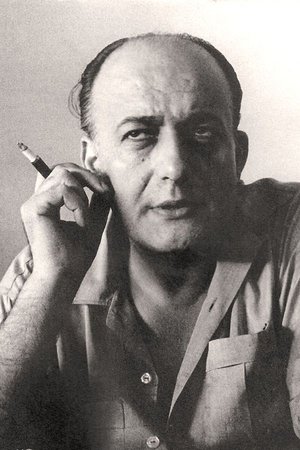Nikos Gatsos
Nikos Gatsos (Greek: Νίκος Γκάτσος; 8 December 1911 – 12 May 1992) was a Greek poet, translator and lyricist. According to Harvard University, he "had a profound influence on the post-war generation of Greek poets. Writing of both loss and hope, Gatsos’s unique blend of surrealism, symbolism and folk song created intense admiration and assured his place alongside his friends, Nobel laureates Odysseas Elytis and George Seferis, as one of the great twentieth-century Greek poets". Nikos Gatsos was born in 1911 in Asea in Arcadia, a district of the Peloponnese, where he finished primary school (dimotiko). He attended high school (gymnasio) in Tripoli, where he became acquainted with literature and foreign languages. Afterwards, he moved to Athens, where he studied literature, philosophy, and history at the University of Athens for two years only. His knowledge of English and French was quite good and he was already familiar with Kostis Palamas, Dionysios Solomos, Greek folk songs, and recent trends in European poetry. In Athens, he came in contact with the literary circles of the day becoming one of the lifelong friends of fellow poet Odysseus Elytis and published his poems, small in extent and in a classic style, in the magazines Nea Estia (1931–32) and Rythmos (1933). During that period he also published criticism in Makedonikes Imeres (Μακεδονικές Ημέρες), Rythmos (Ρυθμός), and Nea Grammata (Νέα Γράμματα) (for Kostis Bastias, Myrtiotissa, and Thrasos Kastanakis, respectively). In 1936, he met Odysseus Elytis, and became his literary "brother" in poetry. In 1943, Aetos published his long poem Amorgos, a major contribution to contemporary Greek poetry notable especially for its combination of surrealism with traditional Greek folk poetry motifs. He subsequently published three more poems: "Elegeio" (1946) in Filologika Chronika, "The Knight and Death" (Ο ιππότης κι ο θάνατος) (1947), and "Song of Old Times" (Τραγούδι του παλιού καιρού) (1963), dedicated to Yorgos Seferis, in the magazine Tachydromos. After World War II, he worked with the Greek-British Review as a translator and with Ellinikí Radiofonía as a radio director. During that period he also began writing lyrics for Manos Hadjidakis. In due course, he also collaborated with Mikis Theodorakis and other notable composers. His hard and language skills were noticed by the "Art Theatre", the "Greek National Theatre" and the "Popular Theatre" of Greece, and entrusted him to translate various plays - his magnum opus was the translation in Greek of the spanish tragedy "Blood Wedding" by Federico Garcia Lorca. He was close to Manos Hadjidakis and Nana Mouskouri. His friends included Philip Sherrard, Peter Levi, Peter Jay, and Desmond O'Grady. He died in Athens on 12 May 1992, aged 80.
